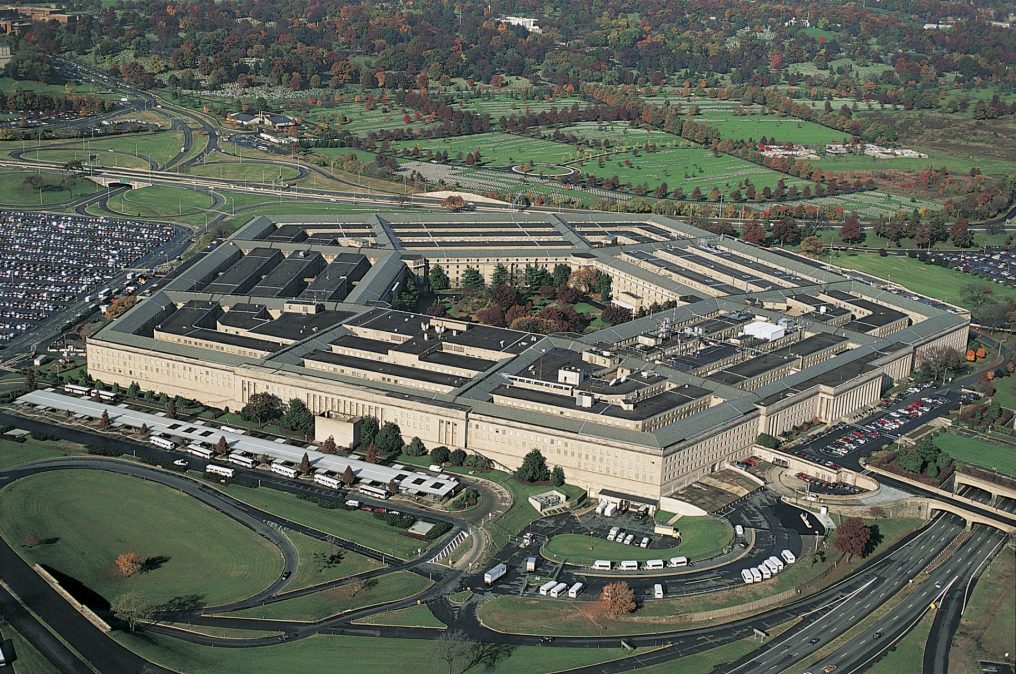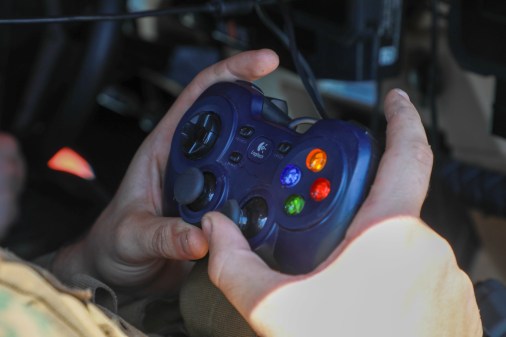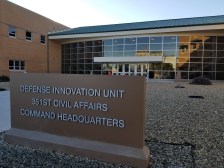DIU consults Pentagon policy shop to move Replicator technology at ‘responsible speed’

As the Pentagon’s ambitious Replicator initiative comes into fruition, it’s being informed by — and simultaneously informing — the military’s existing governance structures and policies for making and using lethal autonomous weapons, senior officials say.
The ultimate aim of Replicator, according to Deputy Defense Secretary Kathleen Hicks and others leading it, is to establish a replicable process via which the department can adopt innovative technologies at a much more accelerated pace than ever before. “Replicator One” refers to the first tech portfolio the Pentagon is tackling through this endeavor and encompasses an overarching plan to deliver thousands of multi-domain autonomous systems by August 2025 to offset China’s massive military buildup.
During multiple panels at the Defense Innovation Unit’s summit in Mountain View, California, on Tuesday, senior DOD officials discussed how the unfolding pursuit is influencing the Defense Department’s science-and-technology policies and objectives.
“There’s a lot to talk about both legal and non-legal uses of force when we get to autonomy. The department has very specific policy guidelines on that. We have to, from the beginning, determine how those policies work with what we’re trying to accomplish with Replicator and provide a range of courses of action. In some cases, that may result in a policy reface of what we’re good with and what we’re not good with in terms of rules of engagement that we would expect to have to employ,” U.S. Indo-Pacific Command’s S&T advisor Martin Lindsey said.
The Pentagon’s recently elevated DIU is playing a leading role in carrying out Replicator. For the first iteration of this initiative, those involved are focusing on developing capabilities for Indo-Pacom, due to its geographic area of responsibility that includes China.
“Because of the governance forums that we’re setting up that will have longevity, I think DIU has a panopticon view of how this is all coming together,” Aditi Kumar, the unit’s deputy director of strategy, policy and national security partnerships, explained.
Her team, she noted, is as serious about moving fast as they are about moving responsibly.
They’ve been engaging deeply with the Pentagon’s policy team regarding the application of DOD Directive 3000.09, which lays out the rules and process for approving the acquisition and deployment of lethal autonomous platforms that can engage military targets without troops intervening.
“The purpose of that very close partnership is to ensure that any capabilities that we’re considering for Replicator — which are weapons systems — can be developed, fielded and scaled with responsible speed. We want to be on the cutting-edge of what’s possible, but we want to do that in line with our values and our tenets for responsible use. And the policy, what it says is not that there needs to be a human in the loop, but that there needs to be human judgment in the deployment of these weapon systems,” Kumar said.
To date, Pentagon officials have not publicly revealed what specific weapon systems have been, are, or will be subject to the 3000.09 review process.
In Kumar’s view, part of what is helping DIU speed up defense innovation for the entire enterprise is pursuing different activities in parallel.
“We’re accelerating by looking at the systems that we have that we can rapidly scale [and] working with Indo-Pacom to refine the [concept of operations] as we are selecting those systems. Their CONOPs may presume a level of autonomy that we need to build, they may presume certain [command-and-control] capabilities that we will need to build — and we’re doing that in parallel. As we build those, if DOD Directive 3000.09 kicks in and applies, we’ll work with policy to bring them in and accelerate that review process and make sure we’re building the right checks,” she explained.
“We’re working with [the research-and-engineering directorate] to make sure that we’re leveraging the experimentation calendar that the department already has, the exercises that are already scheduled to start testing these systems individually and collectively, and we’re taking the lessons learned from those, feeding it back to Indo-Pacom, refining the CONOPs, and going back to policy if we need to. All of that is happening together,” she added.
Officials won’t get everything right from the get-go, she noted.
“What Replicator has really done — like, from the senior level — is it has alleviated a lot of our fear of getting in trouble. That’s what we’re trying to do. We’re trying to go fast, we’re doing it responsibly, but we will be wrong. There will be assumptions that will need to be revisited, capabilities that will just not work and others that we will need to pull in. And that’s kind of the process and the culture change that we’re trying to build with this team, in particular,” she said.
Navy Adm. Samuel Paparo, commander of Pacific Fleet and the nominee to be the next commander of Indo-Pacom, confirmed that one of the “whole host of attributes that” make Replicator-aligned autonomous systems compelling for his team is that, because they’re unmanned, officials can accept more risk when deploying them.
“It really ought to be a dictum to us that we should never send a human being to do something dangerous that a machine can do for us — [and] that when doing so, we should never have human beings making decisions that can’t be better aided by machines,” he said.
At the same time, though, when they opt to lean on autonomy, Paparo emphasized that military personnel must still maintain human accountability moving forward.
“When we are executing lethal operations, and generally speaking, the more offensive we are the more accountability we must have, and the more defensive we are … the more we should rely on those machines to defend the lives that were entrusted with defending. And then the attributes of our systems: they must be controllable, they must be reliable, and they must be backed up by human oversight when it involves the taking of other human lives. I think we just kind of start out with that habit of mind and habit of action, and it can help us make good decisions about the capabilities that we’re bringing to bear,” he said.






